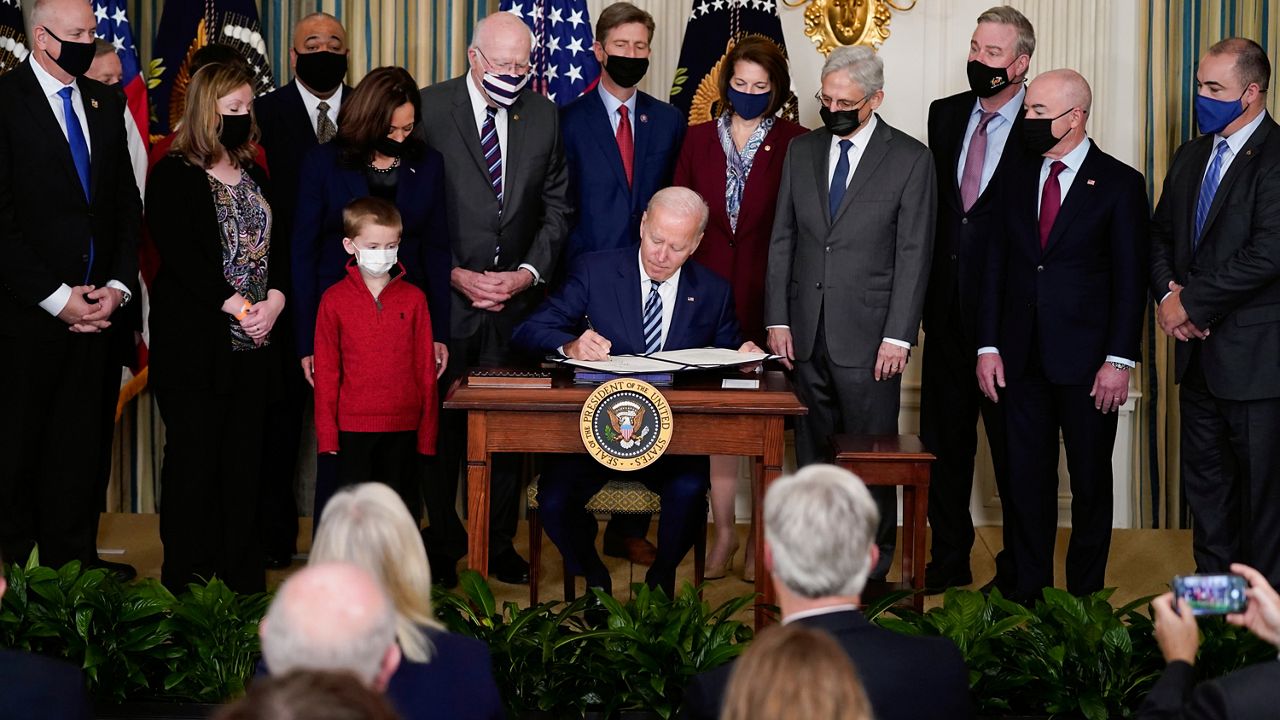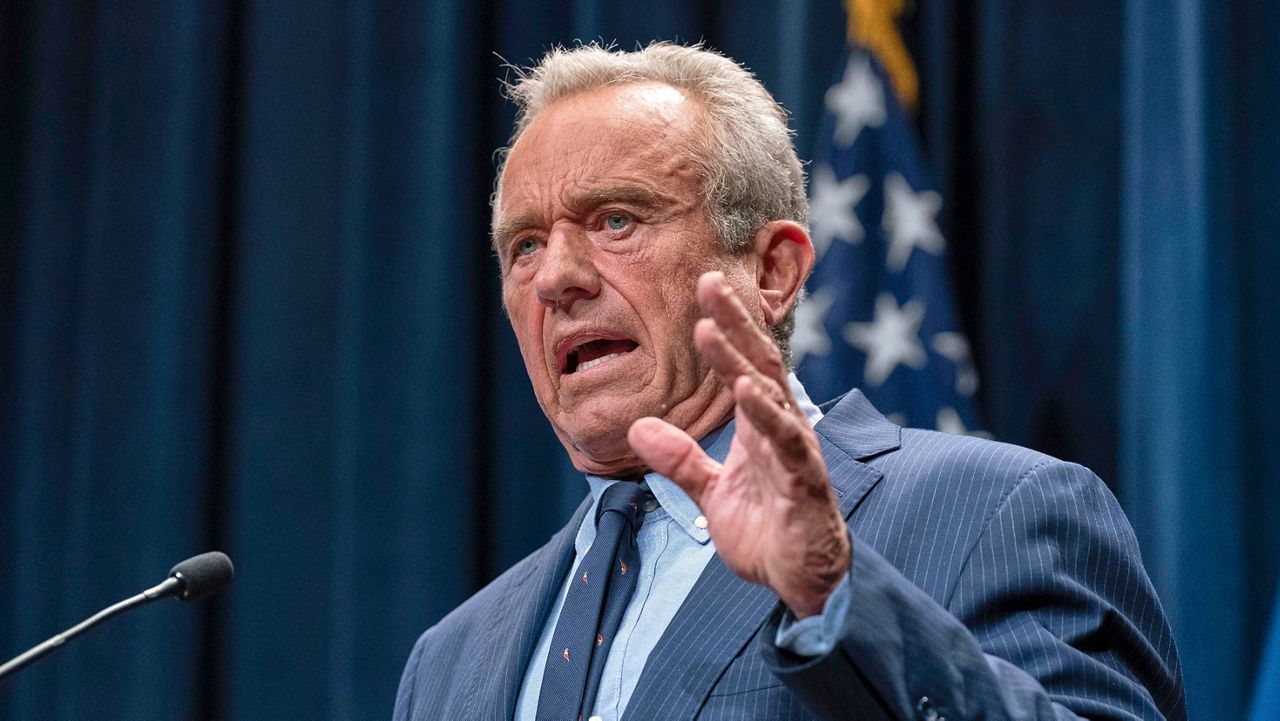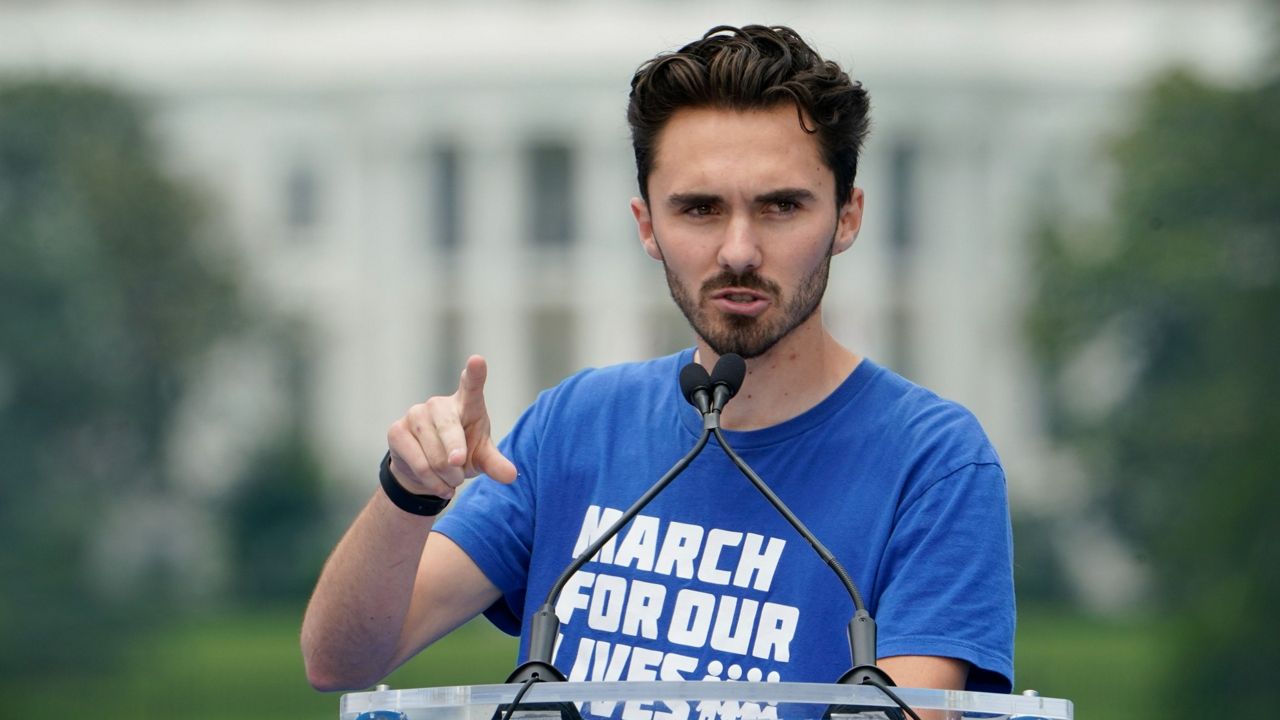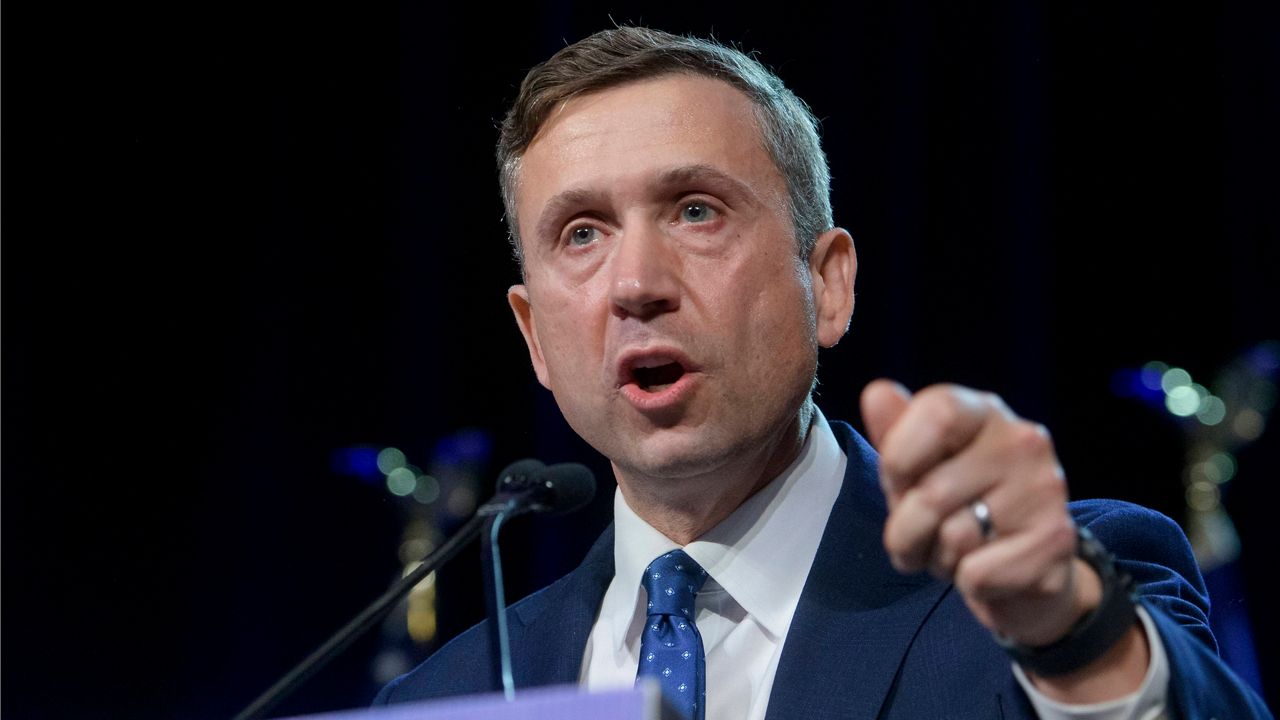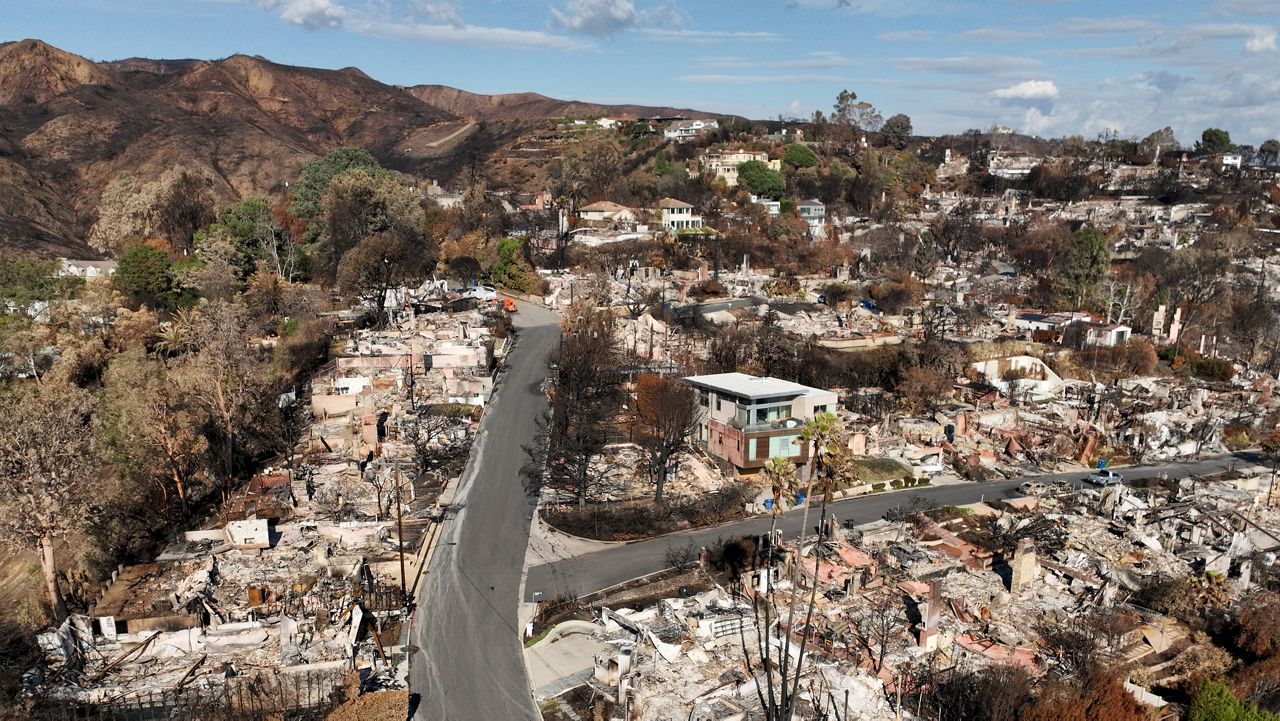President Joe Biden on Thursday signed into law three bills that expand benefits to police officers, first responders and other law enforcement personnel.
The news came the same day that the Justice Department announced a $139 million grant to help police departments nationwide hire 1,000 new officers.
"We are committed to providing police departments with the resources needed to help ensure community safety and build community trust," Attorney General Merrick Garland said of the investment.
“Today’s investment and the bills I’m about to sign share a goal of helping law enforcement officers and first responders be the protectors and the partners our communities need,” Biden said.
A number of law enforcement officials, lawmakers and other officials were in attendance, including Attorney General Merrick Garland, the nation’s top law enforcement official, and Secretary of Homeland Security Alejandro Mayorkas.
"When you look at what our communities need, and what our law enforcement is being asked to do, it’s going to require more resources, not fewer resources," Biden said. "That is why my administration is investing in the community policing we know works."
The three bills each passed Congress with widely bipartisan and near-unanimous support.
The first bill Biden signed, the Confidentiality Opportunities for Peer Support (COPS) Counseling Act, was authored by Sens. Grassley and Catherine Cortez Masto, D-Nev. It encourages mental health and peer counseling programs, while ensuring that information disclosed during those sessions remains confidential. It also requires the Justice Department to create a list of best practices.
The bill received unanimous support in the Senate, with just three votes against it in the House: Progressive Reps. Alexandria Ocasio-Cortez, D-N.Y., Cori Bush, D-Mo., and Rashida Tlaib, D-Mich.
Biden thanked Cortez Masto, noting that the COPS act was modeled after successful laws in Nevada.
“Every day, our nation’s police officers answer the call and confront scenes that can take a toll on them as well, and leave them traumatized,” Biden said, comparing it to what members of the military experience overseas.
“Often, a lot of people come home without a lot of physical wounds, but come home with post-traumatic stress in responding to terrible incidents,” Biden said. “The same thing happens for our law enforcement officers, arriving at homicide scenes, handling child abuse cases. As they confront these situations, we need to help them recover from the invisible wounds that their work can inflict.”
“My hope is by giving more officers access to confidentiality and high-quality mental health resources, we’re gonna reduce the stigma around seeking help,” Biden said, noting he hopes it will lead to better policing and suicide prevention.
“Put simply, we’ll get more officers the help they need so they can better help the communities they serve,” Biden said.
Biden next signed the Protecting America’s First Responders Act, which was backed by New York Sen. Kirsten Gillibrand and Iowa Sen. Chuck Grassley, will ensure that law enforcement and first responders who are disabled in the line of duty are able to get access to their benefits quickly.
That bill also passed unanimously in the Senate and was supported in the House by all but three members, this time all from Republicans: Reps. Chip Roy of Texas, Thomas Massie of Kentucky and Barry Loudermilk of Georgia.
“When our nation’s firefighters, disaster relief officers, EMTs, law enforcement officers and other first responders respond to that radio alert, they run toward the danger while others are running away,” Biden said. “They know there’s a risk of them getting injured or worse.”
“It’s really important,” Biden said, that first responders and their families be able to receive these benefits in the event of an incident to their loved ones.
Quoting a line from the National Law Enforcement Memorial — “In valor, there is hope” — the president said that a leader in the Federal Law Enforcement Officers Association (FLEOA) told him that “this bills restores her sense of valor.”
The third bill Biden signed was the Jaime Zapata and Victor Avila Federal Officers and Employees Protection Act, which was introduced by Texas lawmakers Sen. John Cornyn, a Republican, and Rep. Henry Cuellar, a Democrat. It was passed unanimously in both chambers of Congress.
The bill aims to protect law enforcement and federal employees serving abroad by ensuring that individuals who harm them can be prosecuted in the United States and brought to justice.
Biden recounted the story of Immigration and Customs Enforcement (ICE) special agents Jaime Zapata and Victor Ávila, who were ambushed by members of a drug cartel in Mexico in 2011. Ávila survived the assault, but Zapata succumbed to his wounds.
The two members of the cartel were sentenced to life in prison, though their sentence was at one point briefly overturned on appeal because of a loophole about the DOJ not being able to prosecute anyone who attacks a federal law enforcement agent outside of the U.S., which Biden called a “miscarriage of justice.”
“Thankfully, the murderers remain in prison,” Biden said, adding: “This bill’s gonna protect agents serving abroad and send a message to drug cartels, terrorists and criminals, wherever they operate, that if you attack our agents, you will not escape our justice.”
Biden, before signing the bills, complimented their bipartisan nature, and urged the lawmakers to come together on an agreement to pass the long-stalled George Floyd Justice in Policing Act.
“That’s next,” Biden pledged, asking God to protect the country’s law enforcement officers and first responders as he concluded before signing the bills.
As he signed the COPS act, Biden stopped to chat to Jacob Bomba, the 7-year-old son of fallen officer Thomas Bomba.
"Thank you for being here," Biden said "You OK? Maybe after this, I can show you around the White House?"
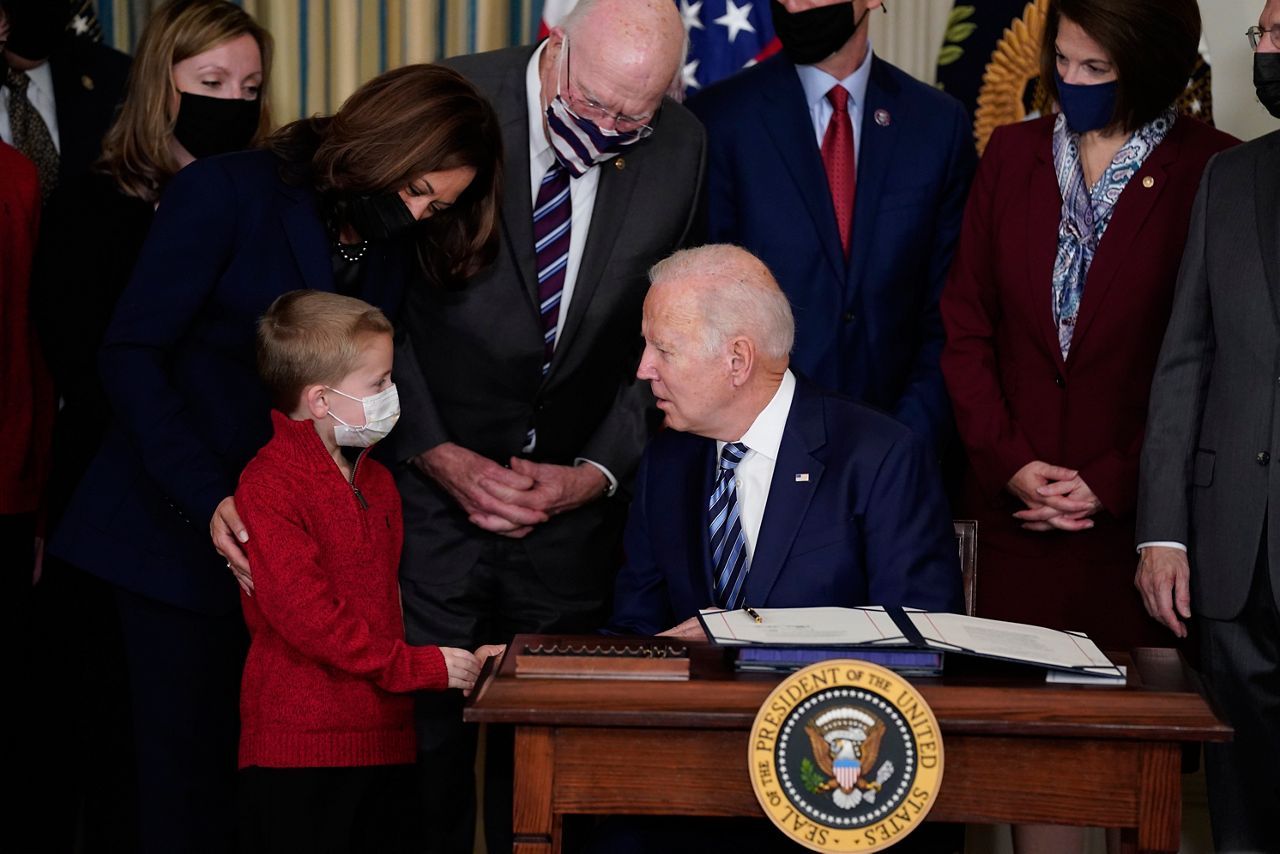
The young boy nodded, to which Biden replied, "That's great, man. Thank you for being here."




